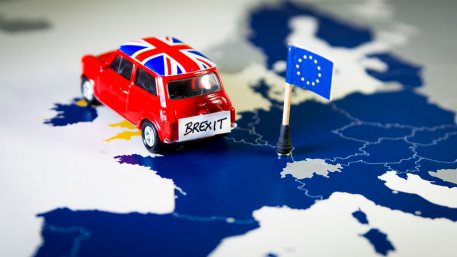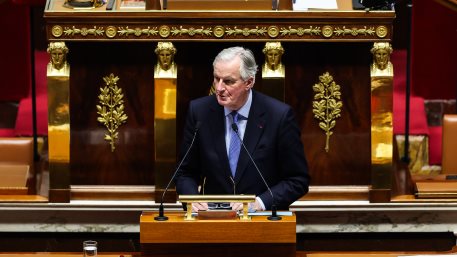
The likes of Boris Johnson and Nigel Farage, as well as other Brexit hardliners, were adamant in their demands that the UK leaves the European Union with or without a deal, in order to "take control of their own country back from foreign authorities" as soon as possible.
As the deadline started to approach quickly, the only noticeable change among the British lawmakers was the polarization and separation of the leading players with each other.
In a series of non-binding votes this Wednesday in Parliament, the MPs could not reach a majority consensus on a single issue. From the initially proposed seven deliberation topics from this Monday, which, apart from throwing the Brexit negotiations further into disarray, also supported our argument that Theresa May is a politically stopped scapegoat.
Wednesday’s vote was the first instance in the past two years that the PM did not have the initiative and even the newly acquired authority did not help the lawmakers to break the deadlock of the trade negotiations conundrum.
It would appear that the only thing that the majority of the MPs can agree on is their mutual resentment of Theresa May's proposal.
The ineptness of the Parliament to bring new solutions to the old problem, all the while still official opposing Theresa May’s proposition with the same unwavering resolve, proves Guy Verhofstadt words that “For the Tories and Labour Brexit is a bullet in a weapon”, only we can extend that clause to include almost all partied concerned" (read more in our article here).
Moreover, it is precisely this political struggle for control over 10 Downing that is shifting away the focus from the main problem.
During the 13th of March EU parliament session, in many senses opposing Guy Verhofsadt was Nigel Farage, who urged the EU council to reject Theresa May’s pleas at the time for extending the Brexit deadline, requesting that the EU should "Veto the UK`s request for an extension to save time".
Now, just two days after Theresa May said that she would resign from her position as a PM, in exchange for support for her proposal, another hardliner – Boris Johnson – said, that under these terms he will back her trade deal.
The demand of hard-line Brexiteers to leave the union with or without a deal was a smokescreen tactic to pressure the PM into political submission. So what about the other parties concerned?
The EU Council has given Theresa May until 11 pm today to either get approval for her trade deal or have the nation decide – to crash out of the Union on 12th of April without an agreement or face a prolonged extension without knowing when the divorce could happen, if at all.
This action by the EU, which has pressured the Parliament to act now, was mostly caused by the lawmakers’ political ineptness, which caused this gridlock in the negotiations in the first place. At least this time when pro-leavers say that they are being told by foreign authorities what to do, there will be some credence to that statement.
In other words, the Brexit negotiations disarray has consequently made those nightmarish scare tactics of the Leave campaigners come true – Britain losing its political sovereignty, however, it was not the EU that took it, but it was the British politicians who are giving it away.
Today is the third and final chance for Theresa May to finally come on top of Parliament victorious, in which case a soft and quick Brexit will be secured. However, there is one major obstacle on the way – North Ireland's Democratic Unionist Party.
The DUP has been resolute since the beginning that they will not support any deal without any assurances by the cabinet for the settlement of the Irish border question.
The party’s deputy leader Nigel Dodds said in an interview for BBC news that the DUP will vote against the withdrawal agreement later today because the party is not expecting "any last minute rabbits out of the hat". This means that the DUP will most likely be the crucial obstacle and the most probable failure of May’s third attempt to avoid hard Brexit by getting her deal passed through.
The Parliamentary vote is scheduled for around 2.30pm today and the only certain thing is that there will be a lot of volatility for the British stock market and the pound can be expected to react on the rising possibilities of a no-deal Brexit.




















